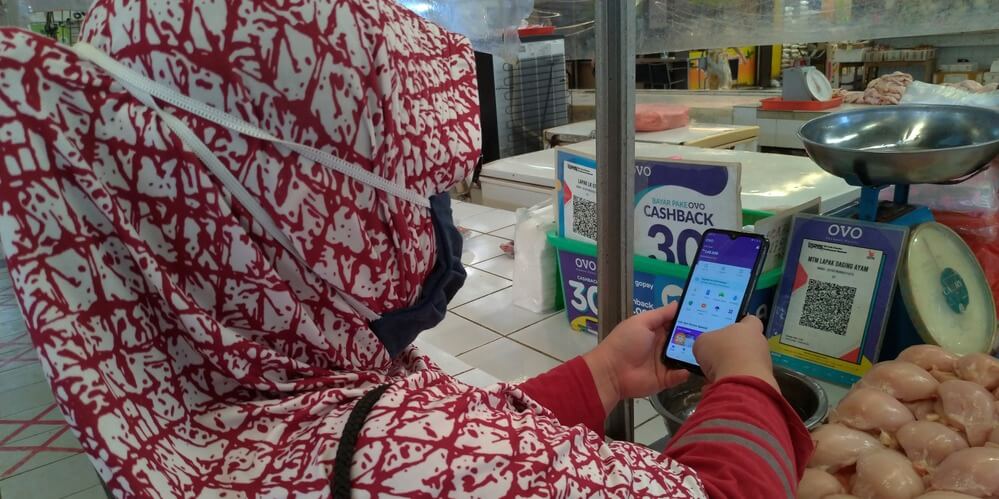Indonesia’s 2020 Islamic fintech financing just below forecast, industry body upbeat about 2021
JAKARTA – Financing distributed by Indonesia’s Islamic fintechs reached 1.75 trillion rupiah ($124.2 million) in 2020, below the 2-3 trillion rupiah forecasted pre-pandemic by the Indonesia crowdfunding fintech association (AFPI).
The growth from 1 trillion rupiah in 2019 to 1.75 trillion rupiah mid-December this year came in spite of the COVID-19 pandemic challenges, AFPI chairperson Lutfi Adhiansyah told Salaam Gateway.
Most of the Shariah-compliant fintech companies have proven to be resilient, said Lutfi, who is also CEO of Islamic fintech company Ammana. Only two of 12 Islamic fintech companies went out of business this year, namely Danakoo Syariah and Syarfi.
“The rest proved to be survivors this year amid the overall sharp downturn in terms of GDP growth,” Lutfi said.
AFPI expects Islamic fintech companies to move into 2021 on a stronger footing.
Financing distributed by Indonesia’s Islamic fintechs that are members of the AFPI:
- Dana Syariah (property financing) 990 billion rupiah
- Alami (invoice financing) 284 billion rupiah
- Ammana (SME & e-commerce financing) 253 billion rupiah
- Berkah (consumer financing) 101.17 billion rupiah
- Kapital Boost (invoice financing) 35 billion rupiah
- Duha (SME & invoice financing) 30 billion rupiah
- Ethis (property financing) 22.8 billion rupiah
- Papitupi (consumer financing) 18.83 billion rupiah
- Qazwa (SME financing) 8.4 billion rupiah
- Bsalam (umroh financing) 6.3 billion rupiah
In addition to the ten Islamic fintechs, Investree also has a Shariah-compliant business unit that is licensed by the Financial Services Authority (FSA).
For 2021, Lutfi expects Islamic fintech financing to accelerate and grow at least 100%.
He cites several factors to support his forecast, including revision of the FSA regulation number 77/ 2016 regarding P2P lending. The revision mandates that Islamic “windows” under conventional fintechs, such as Investree’s Shariah-compliant business unit, be converted into standalone companies.
Other factors at the national level include the halal value chain development plan from the National Sharia Economy and Finance Committee (KNEKS) stipulated in its 2019 to 2024 masterplan that is driving Indonesia’s Islamic economy. Other national-level initiatives as part of KNEKS’ plan include the integration of Islamic financing, which involves fintechs, for halal industrial estates.
"We hope that being actively involved with KNEKS will help maximize the role of fintech lending for the development of the halal product industry. This is because the advantages of the fintech lending industry involves digital access, thus making it easier to reach those in need, especially MSMEs," Lutfi said.
At the private sector level, Lutfi sees the recovery of the hajj and umrah industry, and the continued support from e-money and e-commerce players as being important for the growth of the Islamic economy value chain.
Islamic fintech companies are expected to support the development of the halal products industry by actively providing access to financing for MSMEs. Findings released in November from research by AFPI and DailySocial showed that 70% of borrowers of Islamic fintechs are offline SMEs and 40% are online SMEs.
128 trillion rupiah in lending were disbursed by 156 fintechs, including ten Shariah-compliant companies, until September this year, according to the study.
(Reporting by Yosi Winosa; Editing by Emmy Abdul Alim [email protected])
© SalaamGateway.com 2020 All Rights Reserved
